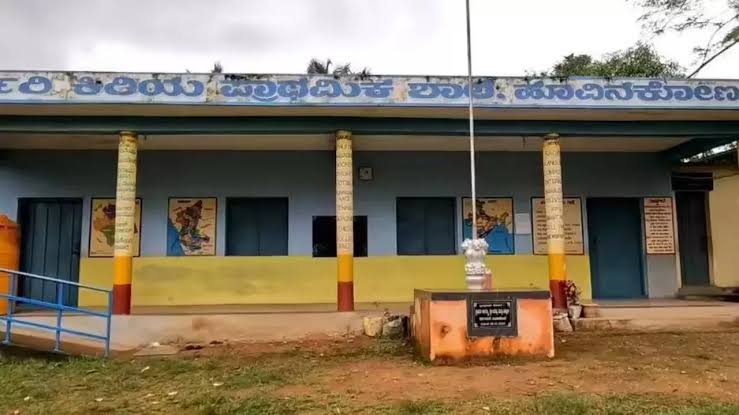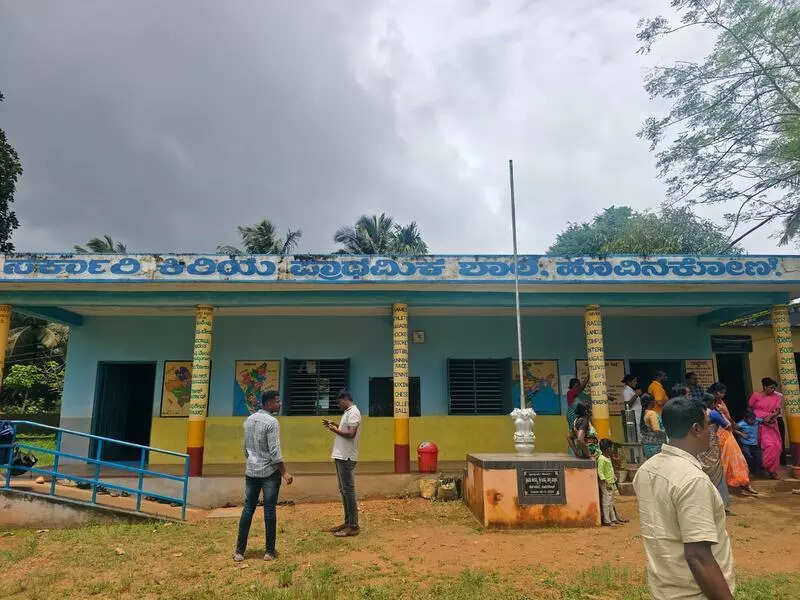Karnataka: How Hoolikatti School's Water Poisoning Case Exposes Communal Undercurrents in Classrooms

Harishankar Manoj, TwoCircles.net
New Delhi: A school poisoning case in Karnataka’s Belagavi district has brought to light the growing influence of communal tensions in local institutions. On July 14, 11 children from the Government Primary School at Janata Colony in Hoolikatti village were hospitalised after consuming water allegedly laced with pesticide. Aged between 7 and 10, the students experienced dizziness and vomiting before being rushed to a local health center.
Investigations quickly led to the arrest of three individuals, including Sagar Patil, Taluk President of the Hindu right-wing group Shri Ram Sena. The incident was linked to an alleged alleged plot targeting the school’s Muslim headmaster. It has triggered a statewide review of school safety protocols and renewed focus on the social atmosphere shaping such acts.
The police say it was not an accident. According to Belagavi Superintendent of Police Bhimshankar Guled, the school’s Muslim headmaster, Suleman Gorinaik, had been targeted in a planned attempt to discredit him. As stated in first information report (FIR), the intention was to create mistrust around Gorinaik’s leadership and prompt his transfer from the school where he has served for nearly a decade.
A student allegedly mixed pesticide into the school’s water tank, after being coaxed with gifts by Krishna Madar, who was reportedly acting under pressure from Patil. The pesticide was procured by Naganagouda Patil, a relative of Sagar, from a nearby town. A former driver for Patil, Madar is said to have participated under threat of exposure over a personal relationship of being inter caste.
Authorities have booked the accused under Sections 125(a) and 110 of the Bharatiya Nyaya Sanhita, 2023, related to endangering life and attempted culpable homicide. They are in judicial custody.
Headmaster Gorinaik expressed surprise and concern over the incident. “The village has always treated me well,” he said, highlighting that the students have since recovered. Serving only 41 students from Grade 1 to 5, the school is the only lower primary institution in the area.
Shri Ram Sena has distanced itself from the accused. Ramakant Konduskar, president of the organisation's Belagavi unit, released a statement condemning the incident and asserting the group has no involvement.
“If proven true, there should be strict action. Personal grievances cannot be allowed to harm children,” he said, adding that calls to ban the organisation were unfounded.
Founded in the 1960s and later gaining visibility under Pramod Muthalik, Shri Ram Sena has a presence in coastal and northern Karnataka. It has been associated with previous acts of vigilante violence.
Karnataka Chief Minister Siddaramaiah condemned the act in strong terms, citing it as an example of “communal hatred leading to crimes against the most vulnerable”. He pointed to a pattern of polarisation, indirectly calling out leaders of the Opposition and right-wing groups.
The government has since formed a special task force to monitor hate crimes and speech, urging people to remain vigilant and report threats to communal harmony. The chief minister said any effective solution would require active civic participation and institutional accountability.
The poisoning in Hoolikatti is not an isolated event. On July 31, a similar incident was reported from Hoovinakone village in Shivamogga district, where an 11-year-old allegedly mixed pesticide in his school’s water out of personal grievance. Authorities believe the act was inspired by a previous case at the same school involving a separate attempt to contaminate a water bottle.
In response to these cases, the Department of School Education and Literacy issued a 25-point Standard Operating Procedure (SOP) for all schools in Karnataka. The SOP mandates daily inspections of school premises, regular checks of water supplies and mandatory reporting through the state’s Students’ Achievement Tracking System (SATS).
[caption id="attachment_452534" align="aligncenter" width="800"] image courtesy: ashamodernschool.in[/caption]
image courtesy: ashamodernschool.in[/caption]
These developments come in the middle of the Karnataka government’s proposal for a new law: the Hate Speech and Hate Crimes (Prevention and Control) Bill, 2025. The draft legislation seeks to define and penalise hate crimes across categories, including religion, caste and gender, with provisions for imprisonment and fines. It also outlines accountability for abetment and incitement.
While the bill has been positioned as a tool to address rising instances of violence and misinformation, it has faced scrutiny from civil rights organisations, legal scholars and Opposition parties. Critics argue that the current draft lacks clarity in key areas and may be prone to misuse. The government has indicated willingness to review and amend the bill before introducing it in the upcoming Assembly session.
The aftermath of the Hoolikatti case has turned attention toward the broader societal conditions enabling such incidents. What began as a criminal investigation into contaminated water has widened into a conversation on communal identity, political responsibility and the role of educational institutions in fragile social ecosystems.
From legal frameworks to administrative protocols, the unfolding response may signal the beginning of more systemic vigilance in the state. Whether this leads to lasting change, however, will depend on the follow-through of both policy and public engagement.
